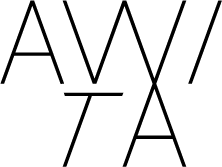Arts Philanthropy Now: Re-seeding our Cultural Landscape with Outset Contemporary Art Fund
By Holly Howe
Outset Contemporary Art Fund was established in 2003, and is an independent charity with bases in nine countries, which pools donations from patrons and partners to support new art for the widest possible audiences and has raised over £10m to date. Our members were joined by three of their directors to discuss the current role of philanthropy in the arts – Co-Founder, Director, and Trustee Candida Gertler OBE, Director Stephanie Schuitemaker who joined Outset Netherlands in 2018; and Director Mirav Katri who joined Outset Israel in 2019.
Philanthropy has always been incredibly important to the arts but it is even more needed now during the pandemic as arts budgets have been cut worldwide and the community has been struggling during lockdown. Candida chose to open her talk to our members with a quote from curator David Bailey:
“I always feel that we are part of this global family, a support network, and in times of distress it is always good to be with family.”
She views Outset as almost being like a matchmaker service – helping people make connections when resources are scarce – and said that “us all joining forces is really something that will make us stronger and really guarantee the future that we all believe in.”
Helping creatives with studios
The organisation aims to be responsive to the actual problems that art ecosystem is facing. One of their projects which has been particularly in focus at the moment is ‘Studiomakers’ which was created in 2016 in collaboration with the GLA and the Arts Council. It was formed as a response to the crisis of affordable working spaces in London for creatives. Now in the context of COVID-19, paying rent for these studios has become an even bigger issues for many artists.
They have now created a resource for everyone who needs to negotiate with landlords for the alleviation of rental charges. Candida explains:
“It is a very good example of how Outset is managing and listening to the problems and challenges of our times… We have probably invested around £150,000 into Studiomakers and we have now raised £7.5m to actually buy buildings that in perpetuity will be reserved for the creative sector.”
Sharing ideas across geographies
Through their international network, there is a ripple effect where projects taking place in one country can help influence the actions of another chapter. Outset has been responsible for acquiring 100 works for the Tate collection from the Frieze Art Fair since in 2003. They identified gaps in the Tate’s collection and set up the Frieze Tate Acquisitions Fund to fill these gaps. This inspired colleagues in the Netherlands to create something similar with a photography art fair. Stephanie from the Netherlands concurred:
“We have the same belief system but every country is different. Because we have the flexibility to do it slightly differently, we are also able to move a little differently. The structure of Outset allows us to respond better to these times.”
Sharing their network
Candida explained that Outset should be seen as a resource for people to use and is open to people getting in touch to explore new ideas they have:
“Outset understands itself as a platform which should be looked at as a resource. If a project comes to somebody’s attention that they individually would like to fundraise for, we are only too happy to lend the platform and the network and all the resources that we have assembled over all these years to support the vision of an individual who would like to approach Outset to use the platform as a fundraising platform.”
The importance of involving donors
Mirav discussed the importance of offering a broad portfolio of projects to their patrons, as everyone will have their own interests.
“We take a group of projects and we measure them by the impact that our donation or support has, be it on the institution or on the artist’s career. We will also take one or two projects that are in major museums. In Israel one of the issues we tried to deal with is the lack of visibility for Israeli artists. We often therefore try to support projects that are abroad and try to bring projects from abroad to Israel.”
Outset is keen to actively involve their patrons in the decision making of what is funded. Mirav shared
“The donors are the ones that get access to the applications, they see what is about to happen in the art world, and they get to help us direct the donations to projects that they find interesting. The model of just asking donors for money and just giving them a receipt it’s a bit obsolete. People want to know and be involved.”
What the future holds for philanthropy
While Outset doesn’t own its own collection or buildings and believes it is important to be in collaboration with institutes instead of naming things after itself, Candida believes a key issue at the moment lies in changing the way in how art is funded.
“We are working at the moment on a digital project that we hope is going to be a partial answer on how to make this sector a little bit more independent of big donors and of big corporate sponsorship, which is becoming more and more problematic [due to scandals]. Empowering the actors in the art of sustaining ourselves from smaller but widespread donations is what we all need to work towards.”
And as Candida stated: “I always thought that 100 people can do more than just one person.”


